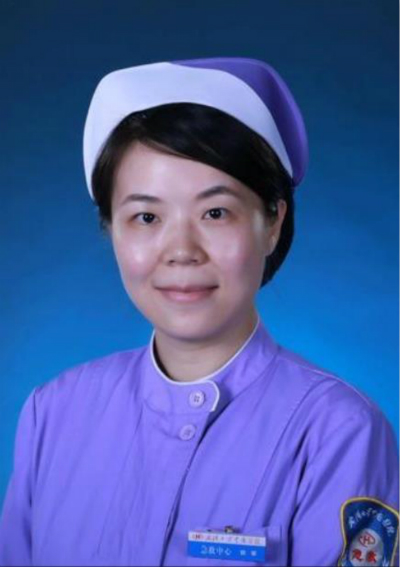On the Frontline

Guo Qin is a nurse in the emergency care center at Zhongnan Hospital of Wuhan University, where she has worked for 15 years.
After a new type of coronavirus outbreak in her city, the 38-year-old was assigned to care for critically ill patients in the emergency center. Her shift stretched to more than 10 hours a day.
At the start of January, there were two to three times more feverish patients than usual at the hospital. As Guo’s long work hours continued increasing, the risk of being infected by the virus grew daily.
On January 12, after finishing her shift late in the evening, Guo felt unwell. Her body temperature had reached 37.8 °C. The next day her temperature continued to rise and her whole body hurt, in addition to experiencing constant migraines. After being examined, it was confirmed that she had contracted the novel coronavirus, becoming the first worker in her hospital to be infected.
“I was a little nervous at the time because we knew so little about this disease,” she said. “But I was not particularly afraid because I was in good physical condition.”
When her diagnosis was confirmed, she was immediately placed in isolation, receiving antiviral and antibacterial treatment. On the first day of her isolation, Guo spent a sleepless night. “The constant steps of my colleagues [rushing about] did not stop for most of the night. I quickly forgot my fears and I just wanted to return to join them as soon as possible.”
As this disease requires a 14-day observation period, she still had to self-isolate at home after she was discharged from hospital. During the entire quarantine period, she had to remain alone. Her family cooked meals for her, which they placed just outside her door.
While Guo was sick, the epidemic in Wuhan quickly escalated. Many medical staff members were infected, causing a serious shortage of front line personnel. She repeatedly expressed her regret that she could not be helping her colleagues.
On January 27, Guo completed her self isolation and observation period, and her physical condition returned to normal. She requested to return to the emergency center and continue to care for hospital patients. Back at work, she took the initiative to share her experience of isolation and treatment with her patients: “This disease is not so severe and can be cured completely. There is no reason to panic,” she told them.
The day of her return to work also brought good news: a patient was successfully cured and discharged from her hospital. “This meant that we should be careful concerning viruses, but without going into panic mode,” said Guo.
“Trust our medical staff. We are your strongest supporters,” Guo often tells her patients.
Her parents, however, remain concerned. “You have to be responsible for yourself, you have to think about your children and your husband,” they reminded her. But while aware of the risks she is taking, Guo said she is able to protect herself and trusts her team.
She now dedicates herself to the most dangerous tasks in the emergency center. She has to wear heavy protective gear for more than six hours a day, but has no regrets. “As front line medical personnel, we have a responsibility to protect our patients. Saving people is our mission. Especially at this critical moment, we have to move forward, we cannot back down,” she said.
